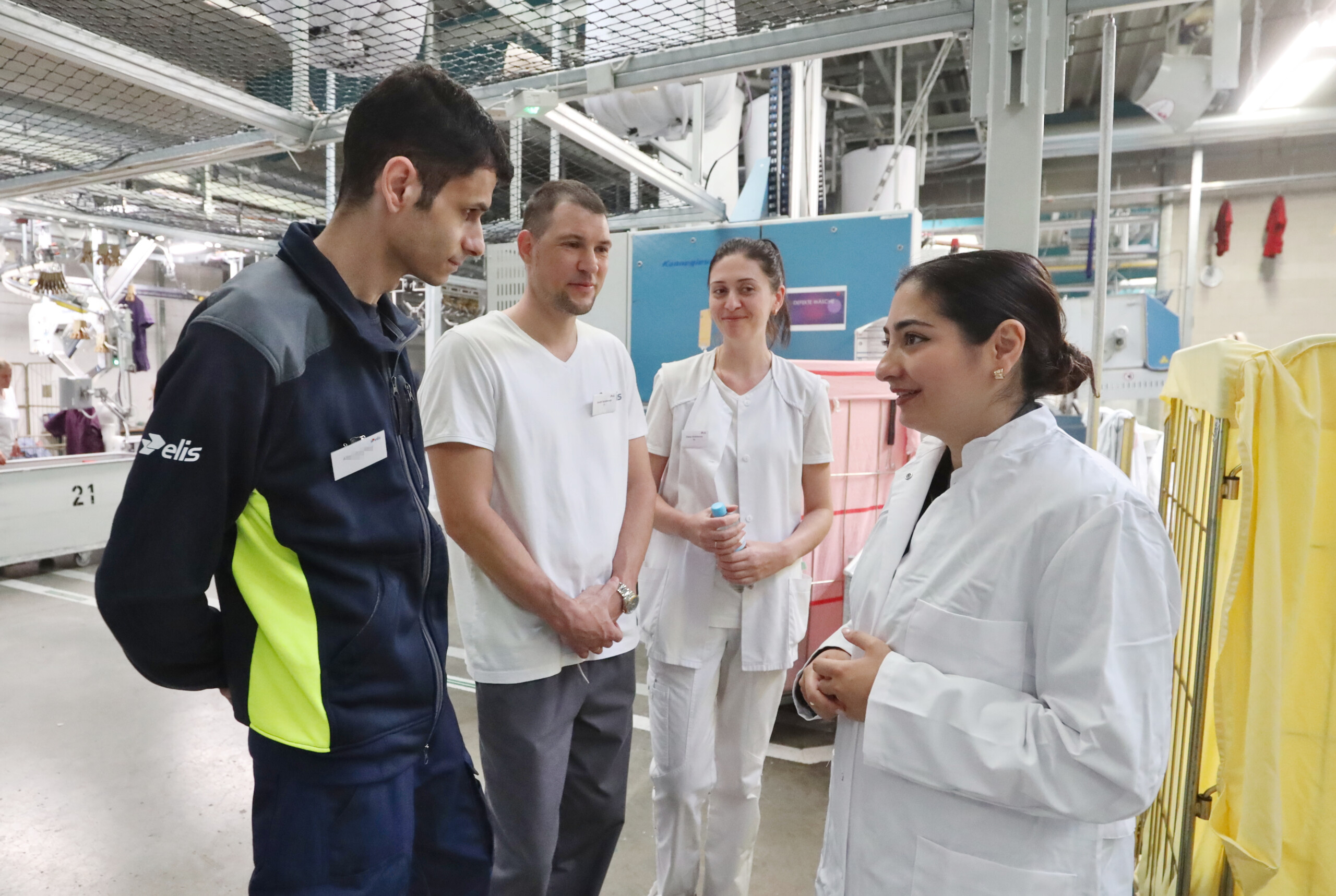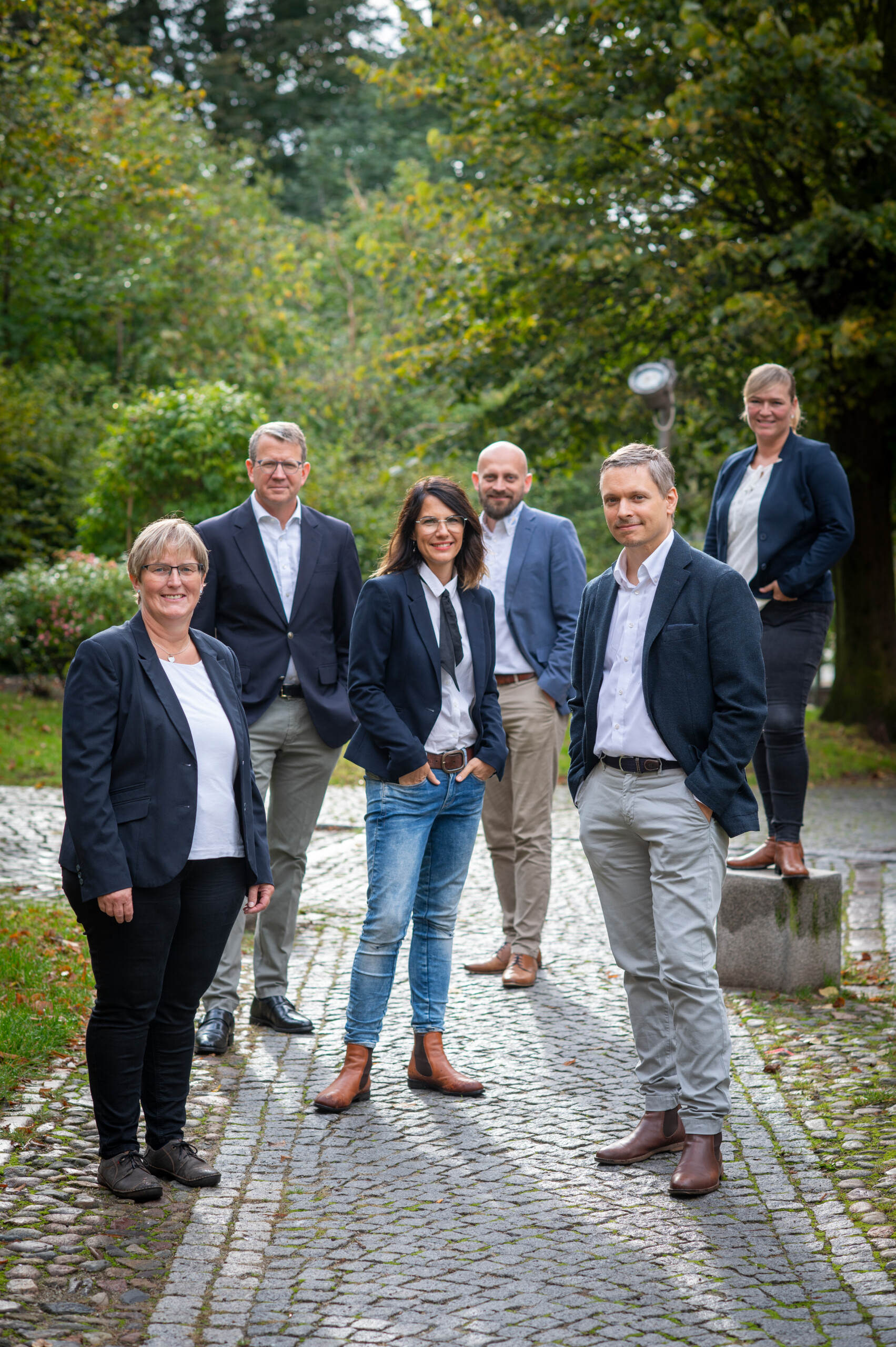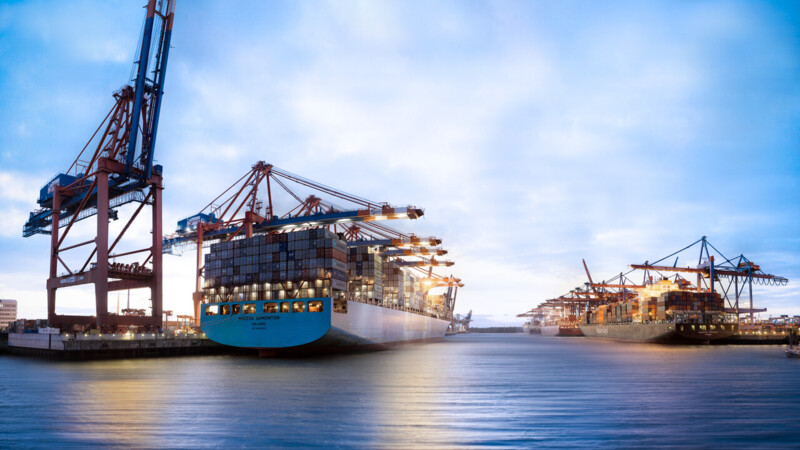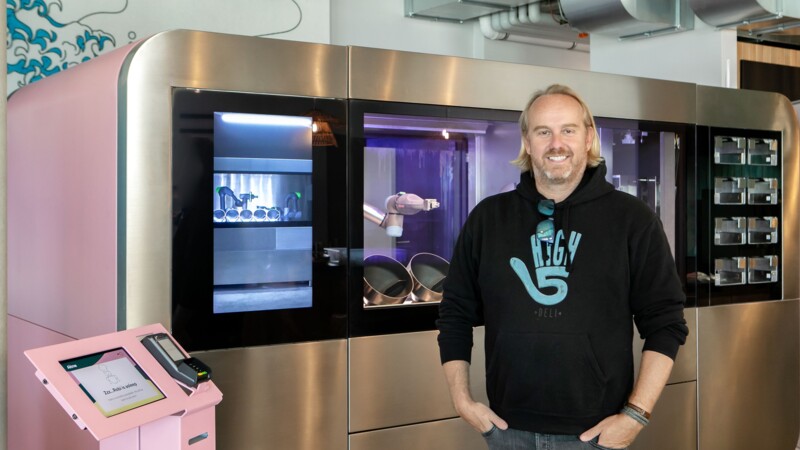"As we can find hardly any skilled labour, we rely on on-the-job training," Budack told Hamburg News in an interview. Thus, Elis offers specialised training and German language courses. Around 43 per cent of employees do not have a German passport. Many of them come from Ukraine, Syria, Poland, Senegal, Morocco or Vietnam. Even untrained staff can become supervisors in the laundry. Budack pointed out: "We are currently training an employee in quality management. She will eventually take on specialist and management tasks as we need skilled labour. More and more older staff, many of whom have vocational training, are retiring." And how does this diverse workforce work together? To boost the atmoshphere, a "Breakfast of Nations", featuring food from many different countries is served. After the next Ramadan fast, Elis will celebrate the breaking of the fast. Last year, the company won the Federal Employment Agency's integration certificate for its commitment. Budack notes: "Good co-operation is important to us because the company would not be able to function without our foreign colleagues."
Northwest Mecklenburg in the Hamburg Metropolitan Region has 1,399 vacancies. Companies including the Elis textile service provider are vying for bright minds east of Lübeck. The Elis industrial laundry in Wismar washes 150 tonnes of laundry every week including surgical gowns, sheets, tablecloths and personal clothing for people in care facilities. The company has five branches in the Hamburg Metropolitan Region and over 30 worldwide. Elis employs 168 staff in Wismar and this figure is growing. When it comes to applications, the company focuses mainly on soft skills: "If you want to join us, you have to be hard-working and enjoy your work," said Anja Budack, HR officer. A lack of German language skills or recognised training are not deal-breakers - at least for production roles.
Specialised training and German courses

Welcome Service Centre Nordwestmecklenburg attracting skilled labor
Elis finds employees in co-operation with job centres, educational institutions and the Welcome Service Center Nordwestmecklenburg (WSC). WSC is the point of contact for skilled workers moving to the district and for local companies. The aim is to attract more people to the coast - by holding job fairs, company visits for job seekers and advice for companies. Special campaign days will be held on the beach promenades this summer to attract tourists. Why not make a fresh start in northwest Mecklenburg-West Pomerania? If you're looking for unspoilt nature, the region boasts over 100 kilometres of beaches and extensive forests. The district is also home to a UNESCO World Heritage Site in Wismar and beautiful seaside resorts in Boltenhagen. So, does the concept work? "It's actually working quite well," said Anne-Juliana Bunkelmann, a WSC representative. "We are benefiting from the trend of people leaving cities. It's mainly young families from Berlin who come to us. Many of them are familiar with the region because they holiday here every year."
Finding accommodation, language courses and daycare places
Qualified workers are in demand in healthcare, nursing, skilled trades, construction and industry. Jobs are also available in the IT sector, catering, logistics and transport. The WSC began onboarding international skilled workers this year and helps find accommodation, the right contact person at the authorities, language courses and daycare places. Thus, WSC helps companies' international employees to feel at home soon after their arrival. Various regular events help people, who are new to northwest Mecklenburg, integrate. These events are sometimes held in English and cater to families, and range from cycling to visiting a museum. Bunkelmann noted: "It's important to us that the newcomers are not isolated, but really find a home here. Anyone looking for peace and space will find Northwest Mecklenburg an excellent choice."

New co-ordination centre to secure skilled labour for metropolitan region
Given the importance of skilled labour in future, the Hamburg Metropolitan Region recently set up the Coordination Office for Securing Skilled Labour. The office’s goal is to recruit, train and qualify skilled workers. Initial ideas for projects are already in place, including a virtual welcome centre, a portal for skilled workers and employers and further training in renewable energy and hydrogen technology especially for SMEs. Plans are now being laid to launch initial projects.
agu/kk/pb
Sources and further information
Similar articles

International skilled workers welcome in Hamburg

Hamburg tops Talent City Index

